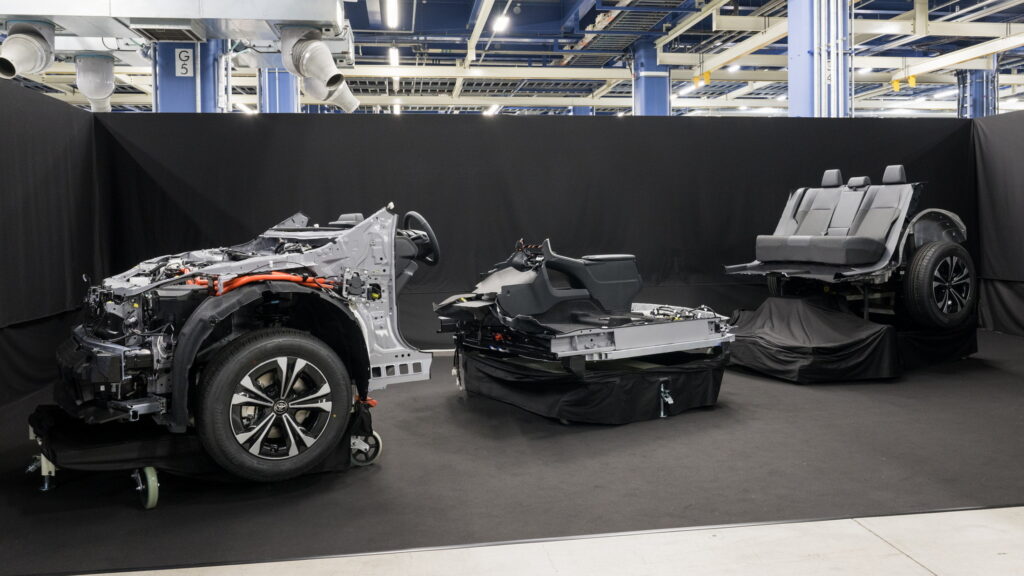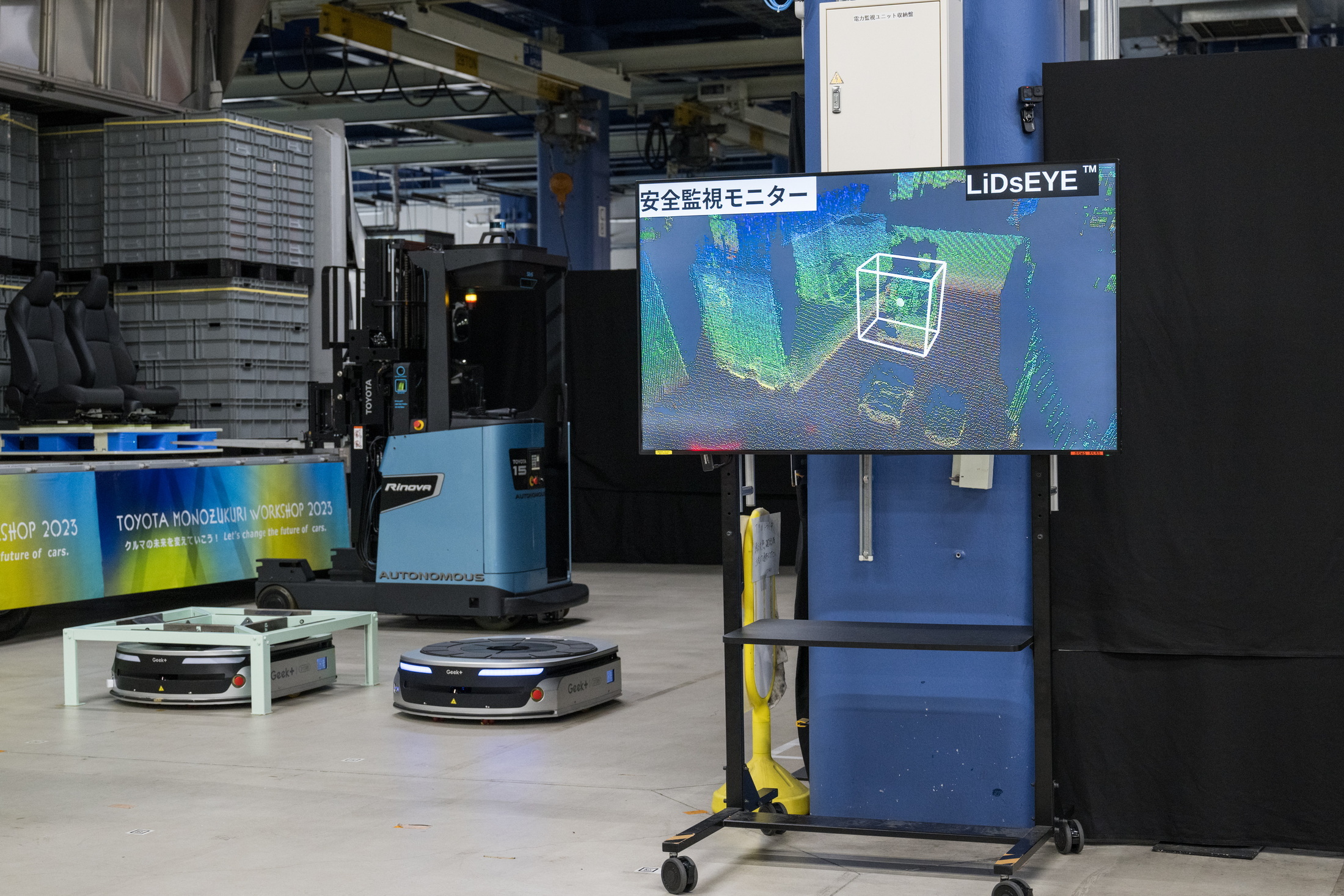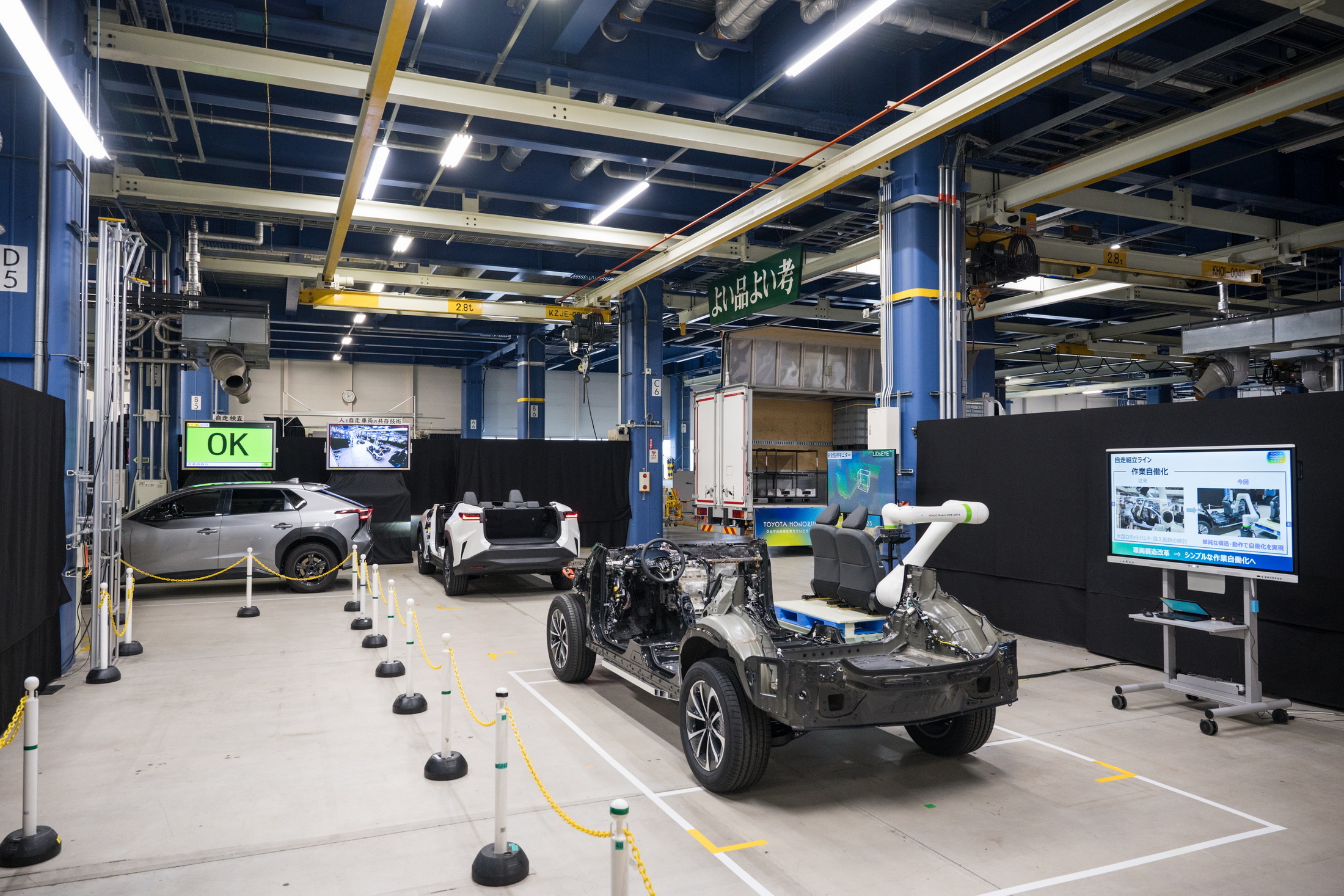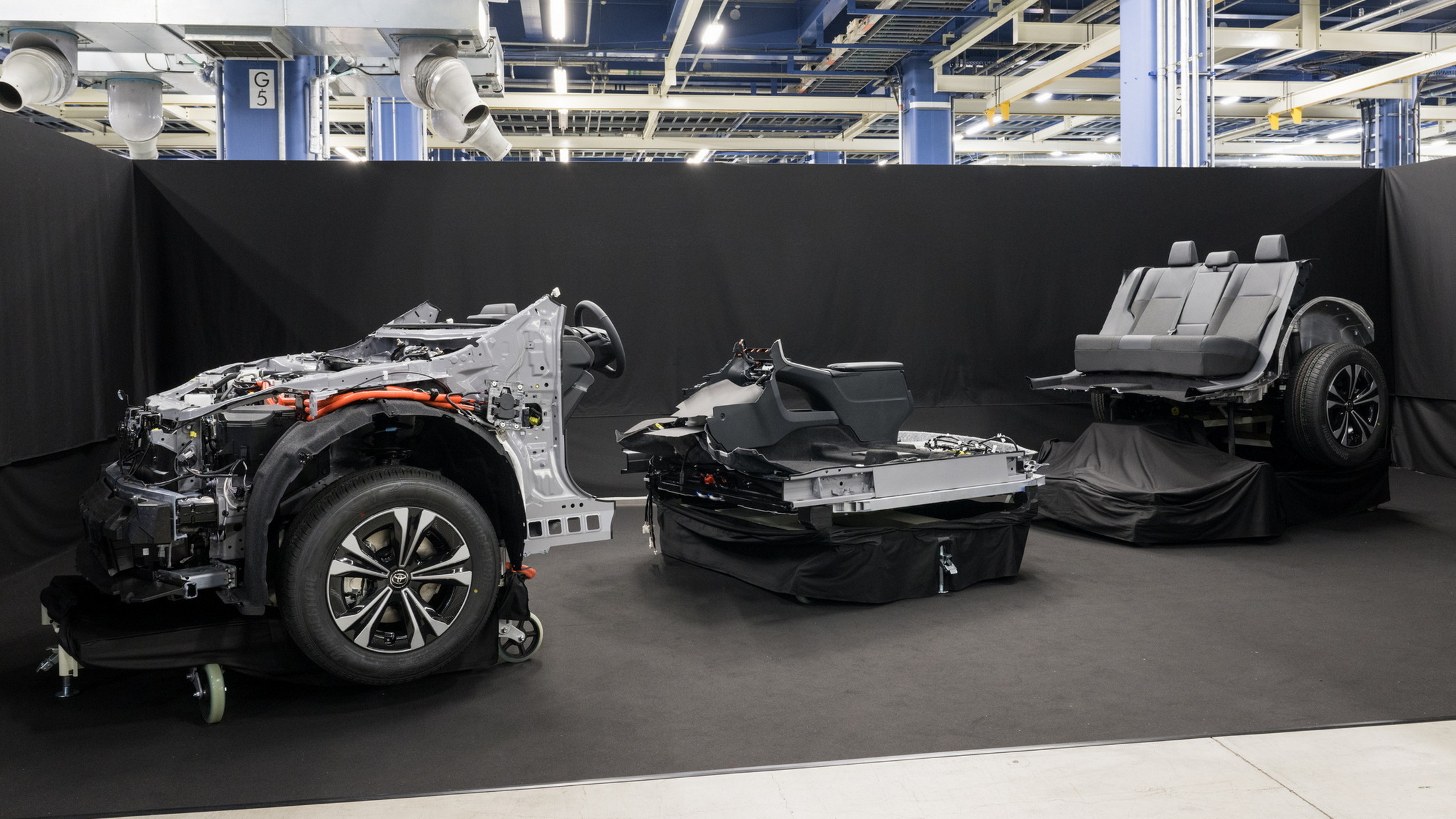Much has been made of Tesla’s adoption of so-called “gigapresses” that can create larger pieces, and make cars with fewer parts. Toyota recently called the Model Y, which uses this technology, a “work of art,” and has now shown off its own gigapresses in Japan.
Toyota has been slow to adopt electric vehicles, but recently announced that it is looking to build 3.5 million per year by 2030. Although its existing internal combustion vehicles are made with platforms designed for efficiency, it doesn’t believe it can use them to make a profitable electric vehicle, where batteries and novel technology drive up costs.
During a demonstration at its Myochi plant in Japan, the automaker showcased the process of pouring molten aluminum into a mold, resulting in a single piece that constituted the entire rear third of a vehicle chassis, as reported by Nikkei. In its current vehicle manufacturing process, achieving the same portion of a car requires 86 parts, 33 steps, and several hours. However, with this new gigacasting machinery, it would take just about three minutes.
Read: Toyota Engineers Blown Away By Tesla Model Y, Makes Them Rethink EV Approach
Toyota built its first gigacast prototype in September 2022, and has been continually refining it since. Now, it’s more efficient and quicker to adapt for various vehicle models. The company still aims to achieve 20 percent higher productivity than its competitors using this new technology. This innovation will be employed in manufacturing the front and rear sections of a forthcoming electric vehicle, slated for release in 2026.
In addition to the new casting technology, Toyota is also looking to make the rest of its factory more efficient. Since EVs require more factory space to manufacturer than internal combustion vehicles, it is also looking to minimize its use of conveyor belts.
To do that, it will utilize its advanced technology and the fact that EVs can run indoors. Partially built vehicles will move at 0.1 meters per second (0.2 mph) to meet an autonomous robot that can lift the vehicle and take to other areas of the factory.
While smaller companies like Tesla have the benefit of being able to produce just a few models, Toyota’s chief production officer, Kazuaki Shingo, said that it is “learning new options from specialized EV makers to take on the challenge” of producing the vehicles.








